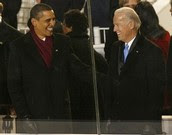 Palin is at once the sexiest and the riskiest brand in the Republican Party. Her appeal to people in the party (and in the country) who share her convictions and resentments is profound. The fascination is viral, and global.
Palin is at once the sexiest and the riskiest brand in the Republican Party. Her appeal to people in the party (and in the country) who share her convictions and resentments is profound. The fascination is viral, and global.
Whatever her political future, the emergence of Sarah Palin raises questions that will not soon go away. What does it say about the nature of modern American politics that a public official who often seems proud of what she does not know is not only accepted but applauded? What does her prominence say about the importance of having (or lacking) a record of achievement in public life? Why did so many skilled veterans of the Republican Party—long regarded as the more adroit team in presidential politics—keep loyally working for her election even after they privately realized she was casual about the truth and totally unfit for the vice-presidency? Perhaps most painful, how could John McCain, one of the cagiest survivors in contemporary politics—with a fine appreciation of life’s injustices and absurdities, a love for the sweep of history, and an overdeveloped sense of his own integrity and honor—ever have picked a person whose utter shortage of qualification for her proposed job all but disqualified him for his?
[Personal insert: There is one answer that will cover the last two questions, at least: Neither McCain nor the Republican Party at large wanted to win the election. Palin was not in on the joke. Just my personal take on the disaster that was the last Republican presidential campaign.]
 In the aftermath of the November election, the conventional wisdom among Palin’s supporters in the Republican establishment was that she should go home, keep her head down, show that she could govern effectively, and quietly educate herself about foreign and domestic policy with the help of a cadre of experienced advisers. She has done none of this.
In the aftermath of the November election, the conventional wisdom among Palin’s supporters in the Republican establishment was that she should go home, keep her head down, show that she could govern effectively, and quietly educate herself about foreign and domestic policy with the help of a cadre of experienced advisers. She has done none of this.
Palin is a cipher by choice. When she chooses to reveal herself, what she reveals is not always the same thing as the truth. Her singular refusal to have in-depth conversations with the national media . . . has compounded the challenge of understanding who she really is. There has been Hollywood talk that Palin could star in a reality-TV show about running
[**Personal note: Oh, please, oh please do, Sarah! What an efficient method for destroying your next campaign! Please! Please! Please!]
Little Shop of Horrors
The caricature of Sarah Palin that emerged in the presidential campaign, for good  and ill, is now ineradicable. The swift journey from her knockout convention speech to Tina Fey’s dead-eyed incarnation of her as Dan Quayle with an updo played out in real time, no less for the bewildered McCain campaign than for the public at large. It is an ironclad axiom of politics that if a campaign looks troubled from the outside the inside reality is far worse, and the McCain-Palin fiasco was no exception.
and ill, is now ineradicable. The swift journey from her knockout convention speech to Tina Fey’s dead-eyed incarnation of her as Dan Quayle with an updo played out in real time, no less for the bewildered McCain campaign than for the public at large. It is an ironclad axiom of politics that if a campaign looks troubled from the outside the inside reality is far worse, and the McCain-Palin fiasco was no exception.
By the time Election Day rolled around, the staff had been serially pummeled by unflattering press reports about the gaps in Palin’s knowledge, her stubborn resistance to direction, and the post-selection spending spree in which she ran up bills of $150,000 on clothes for herself and her  family at high-end stores. The top McCain aides who had tried hard to work with Palin . . . were barely on speaking terms with her, and news organizations were reporting that anonymous McCain aides saw Palin as a “diva” and a “whack job.”
family at high-end stores. The top McCain aides who had tried hard to work with Palin . . . were barely on speaking terms with her, and news organizations were reporting that anonymous McCain aides saw Palin as a “diva” and a “whack job.”
[I]n a recent series of conversations, a range of people from the McCain-Palin campaign, including members of the high command, agreed to elaborate on how a match they thought so right ended up going so wrong.
After she was picked, the campaign belatedly sent a dozen lawyers and researchers, led by a veteran Bush aide, Taylor Griffin, to
In regards to the debate with Biden:
Palin worked hard, and the results were adequate. Palin’s winking “Can I call  you Joe?” performance against Biden was nothing like a disaster. In fact, it seems to have emboldened her enough that the next day she openly voiced disagreement with the McCain team’s decision to pull out of active competition in
you Joe?” performance against Biden was nothing like a disaster. In fact, it seems to have emboldened her enough that the next day she openly voiced disagreement with the McCain team’s decision to pull out of active competition in
xxx
Immediately, Jim Geraghty of the National Review Online came out swinging.
He wrote an article entitled,
He led off with, “To go through the 9,800 word profile/excoriation of Sarah Palin by Todd Purdum in Vanity Fair and Fisk it line by line would take an enormous amount of time and space, and probably more time than you’re willing to devote to reading it. So for now, the low-lights:”
Isn’t it beautiful? In one fell swoop he dismissed his readers’ need to check the source and helped them feel virtuous for choosing to remain ignorant of what the article actually said. That’s quite a skill. “There, there, dears. Don’t you worry your pretty little heads about what’s in that nasty old article. Uncle Jim will tell you everything you need to know.”
He then goes on to argue against the hyperbole [of which there is plenty, I admit] and the opinions [ditto]. However, he mentions very few of the facts outlined in the article, and pretty much refuses to dispute them. I would imagine that is because could not disagree with the factual statements as they were all true. Indeed, he simply glossed over most of them. Best not to put them before his readers’ eyes, after all. They might get to know some of the more unsavory bits about their princess. Probably not a good idea.
His article reminds me of the Lawyer’s First Rule: When the law is against you, argue the facts. When the facts are against you, argue the law. When both are against you, call the other lawyer names. Does this remind you of any campaign of recent history? Geraghty continues this great tradition. In his case, he sneered at Purdum while ignoring the truths in the article.
His fancy footwork was amazing. Again—he displayed a great deal of skill. The fact that he used it to lull his readers  into complacent bobble-headed acceptance of an altogether unprepared person who may well be seeking the presidency is pretty frightening, to my way of thinking.
into complacent bobble-headed acceptance of an altogether unprepared person who may well be seeking the presidency is pretty frightening, to my way of thinking.
[As I was rereading the last paragraph, what popped into my mind’s eye was Richard Gere’s/Billy Flynn’s tap-dance during the trial of Roxie Hart in
Geraghty adroitly used opinions put forth by Purdum about Palin as chances to take digs at Obama and even Bill Clinton. I counted two against Obama and one against
He claimed that Purdum intimated that Palin won the debate against Byden. I watched that debate. I’ll bet you did, too. Tell me, who do you think won?
Geraghty wrote, “She has been living in the eye of a hurricane since last August, and has become one of the few figures subject to the scrutiny of both the political media and the celebrity-industrial complex manifested in People and Us Weekly. Almost overnight, she’s gained millions of devoted fans and furious enemies. That has to be a horrific environment to make tough decisions in.”
To my mind, this statement makes Palin out to be some sort of innocent bystander—not the person who has orchestrated the media frenzy from the beginning of her campaign until the present—notwithstanding the attempts by her handlers to get her off the stage where she just keeps damaging herself in the public eye.
Geraghty did make one cogent and truthful point: “Palin may run for president in 2012, which could very well be a mistake. Her current public reputation and support is probably just enough to win the GOP nomination and then generate similar electoral college results as 2008. As a GOP strategist put it to me a few months ago, ‘The perception of Sarah Palin will change when the reality of Sarah Palin changes.’” Ummm, do you actually expect THAT to happen? Me neither.
Another skill Geraghty displayed was changing the subject so dexterously that I almost missed it.
Note Purdum’s statement in the original article:
“Also with Coale’s help, Palin formed the grandiosely named Alaska Fund Trust, to defray a reported half million dollars in legal expenses arising from a slew of formal ethics complaints against her in her home state—prompting yet another formal complaint, that the fund itself constitutes an ethical breach.”
And Geraghty’s response:
“The fact that Palin is now 15 for 15 in having those “formal ethics complaints” dismissed as groundless would seem to be somewhat relevant.
Purdum wrote about the Alaska Fund Trust and the reason it was created—to offset Palin’s legal costs. He did not suggest that the ethics complaints had merit. He DID say that the Fund itself turned out to have been questioned as to its own ethics.
However, Geraghty ignored the point about the Fund and focused on the merit of the complaints. Nifty knitting? Yes. Answering the point brought up in the original article? No.
Finally, he went on to say, “I find my toddler son exhausting; I can only imagine a life running a state while caring for a son with Down syndrome and a son in Iraq and a daughter who is a new mother in the sharp glare of the public spotlight and a grandson and another daughter suddenly appearing in David Letterman’s routine. This may not be the right time for another go-round in a multi-year process in which vast swaths of the political world will aim to see her torn down to nothing.”
Once again: “Poor widdle Sarah. She’s such a victim. Feel sowwy foa her.”
And he ended his piece with that most vapid of statements: “But it’s her call, and time will tell.”
Oh, really? The rest of us hadn’t figured that part out. Thanks for explaining it to us mindless ijits.











































